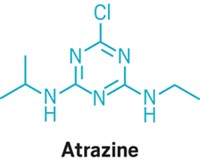Advertisement
Grab your lab coat. Let's get started
Welcome!
Welcome!
Create an account below to get 6 C&EN articles per month, receive newsletters and more - all free.
It seems this is your first time logging in online. Please enter the following information to continue.
As an ACS member you automatically get access to this site. All we need is few more details to create your reading experience.
Not you? Sign in with a different account.
Not you? Sign in with a different account.
ERROR 1
ERROR 1
ERROR 2
ERROR 2
ERROR 2
ERROR 2
ERROR 2
Password and Confirm password must match.
If you have an ACS member number, please enter it here so we can link this account to your membership. (optional)
ERROR 2
ACS values your privacy. By submitting your information, you are gaining access to C&EN and subscribing to our weekly newsletter. We use the information you provide to make your reading experience better, and we will never sell your data to third party members.
Environment
The EU’s Hot Potato
BASF sues over approval of a genetically modified plant
by Melody Voith
August 1, 2008
BASF has filed suit against the European Commission (EC) in the European Court of First Instance over delays in approving its genetically modified Amflora potato. The potato has been altered to produce pure amylopectin starch, used primarily in the paper industry.
The company first filed for approval for Amflora in 1996, prior to Europe’s 1998–2004 moratorium on genetically modified organisms (GMOs). In 2003, the European Union adopted a stringent process to approve imports and cultivation of GMOs. The only GMO crop grown in Europe today is corn genetically modified for insect resistance.
In 2006, the European Food Safety Authority concluded that Amflora potatoes are no more likely to cause adverse effects than conventional potatoes. EFSA’s proposal to approve the potato received inconclusive committee votes in 2006 and 2007, a deadlock that means the EC is supposed to approve it.
According to the EC, the holdup is due to BASF’s use of antibiotic resistance marker genes in its process for inserting novel starch genes into the potato’s DNA. The commission is concerned about the possibility of gene transfer into animals and humans.
As recently as 2004, EFSA confirmed the safety of the nptII marker gene used in Amflora. Now, approval for Amflora hinges on the outcome of a new report on the technology, which EFSA says will be out no earlier than Dec. 15.
Mette Johansson, a spokeswoman for BASF Plant Science, tells C&EN: “We have nothing against the strict approval process, but we want politicians to stick to it. We fear that, for political reasons, the commission is not acting according to the science.”
The environmental group Friends of the Earth Europe favors restricting the use of marker genes. “Protecting antibiotics is essential,” food and farming campaigner Adrian Bebb says. “Introducing antibiotic resistance genes into potatoes is crass and unnecessary.”




Join the conversation
Contact the reporter
Submit a Letter to the Editor for publication
Engage with us on Twitter